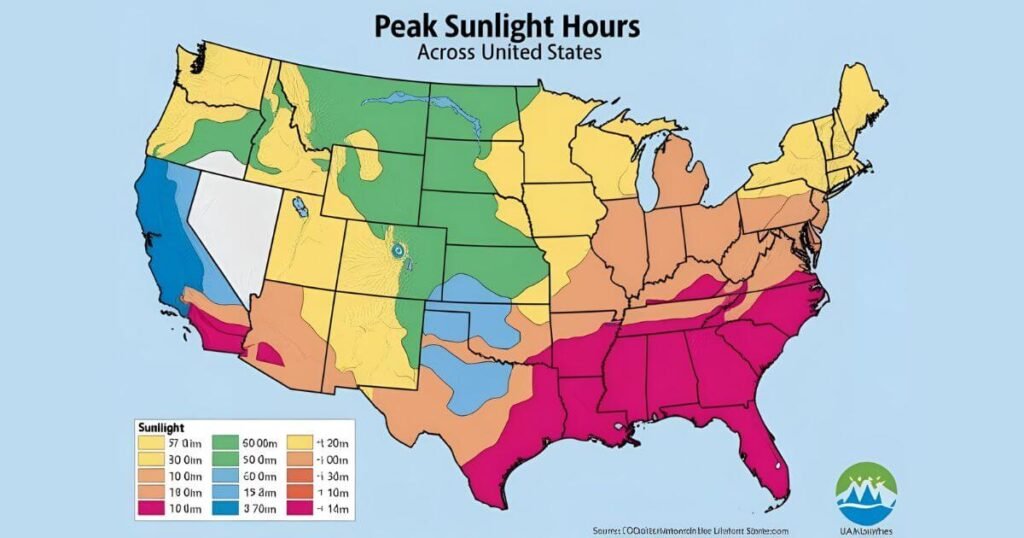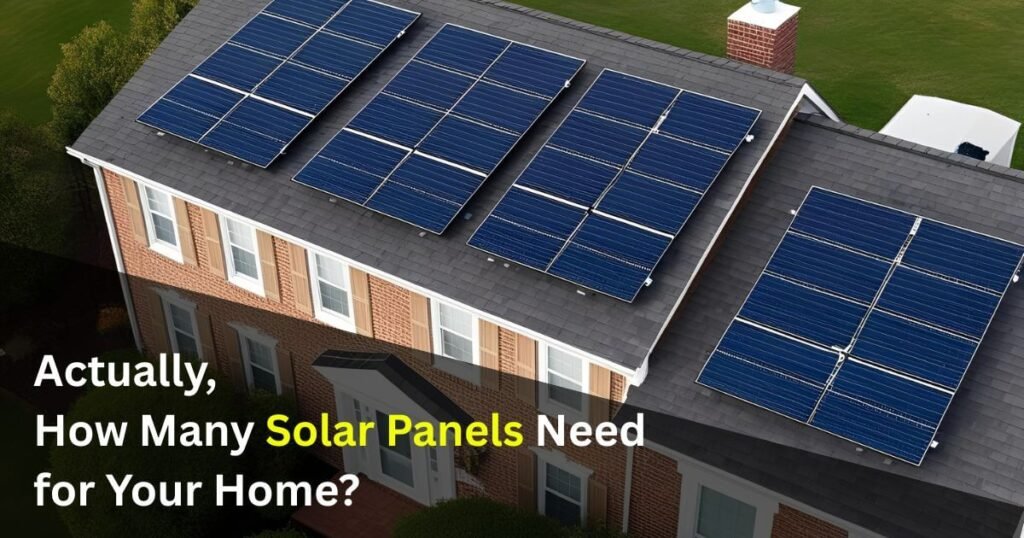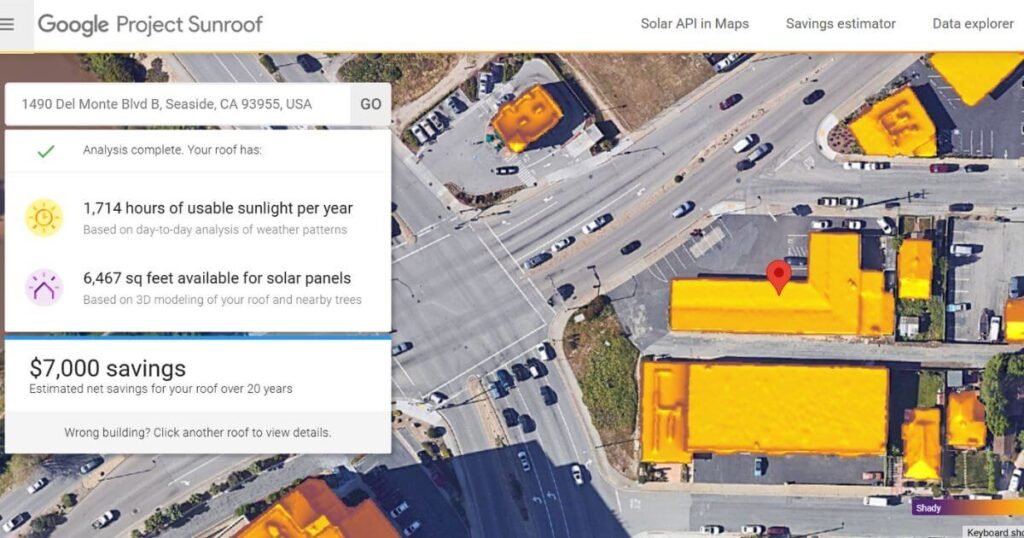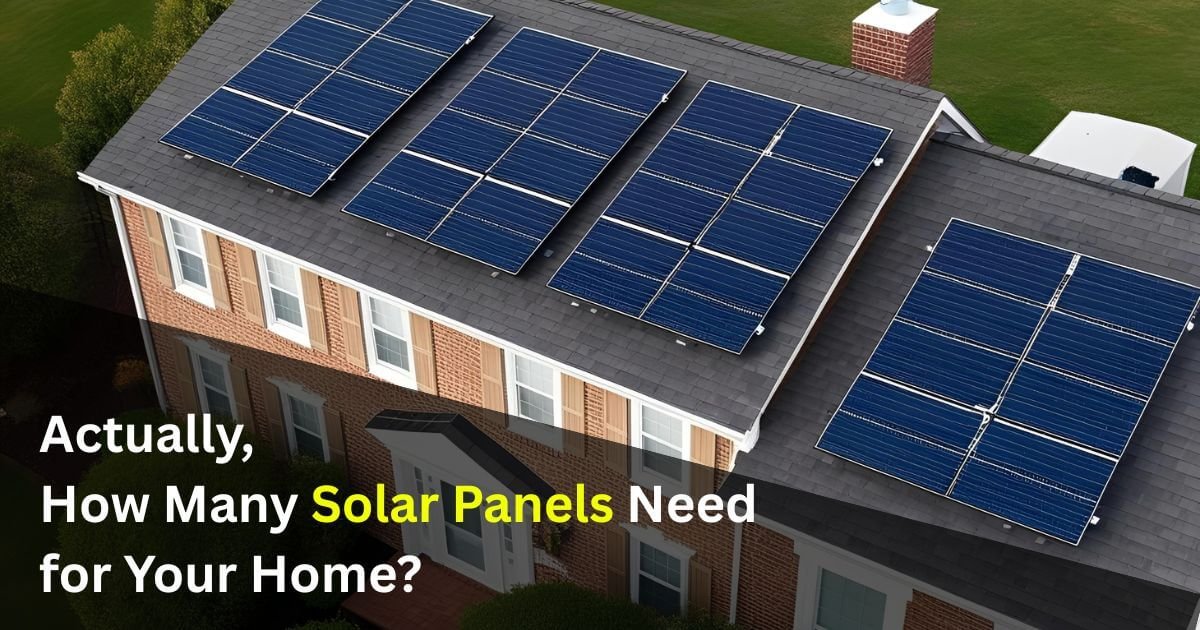Switching to solar is one of the smartest investments homeowners can make today. But one of the most common questions homeowners ask is, “How many solar panels do I need?” Although, the answer depends on several factors unique to your home and lifestyle.
In this guide, I’ll walk you through everything you need to know to determine the right number of solar panels for your home while keeping your energy goals and budget in mind.
Factors Affecting Panel Count
Before you start calculating, it’s important to understand the key factors that affect how many solar panels you need. Let’s discuss these factors to understand them clearly:
Electricity Usage
Your household’s energy consumption is the foundation of determining how many solar panels are required. This is typically measured in kilowatt-hours (kWh) and can be found on your monthly utility bill.
- High-energy households with air conditioning, electric heating, or multiple appliances will need more panels.
- Energy-efficient homes may require fewer panels, especially if you’ve already implemented energy-saving measures like LED lighting or smart thermostats.
Pro Tip: Review your utility bills over a year to account for seasonal variations in energy use.
Sunlight Availability
The amount of sunlight your location receives plays a critical role in solar panel efficiency. Areas with abundant sunshine, like Arizona or California, can generate more electricity per panel than regions with frequent cloud cover, like Seattle.
- Peak sunlight hours: This refers to the average number of hours per day when sunlight intensity is optimal for solar energy production.
- Local climate: Rainy or snowy climates may reduce overall efficiency, requiring additional panels to compensate.

Roof Space
Your roof’s size, orientation, and condition also impact how many panels you can install. South-facing roofs typically receive the most sunlight, making them ideal for solar installations.
- Available space: If your roof is small or has obstructions like chimneys or vents, you may need higher-efficiency panels to maximize energy production.
- Structural integrity: Ensure your roof can support the weight of the panels before proceeding.
Step-by-Step Calculation
Here’s a simplified method to estimate how many solar panels you need:
Step 1: Calculate your annual electricity usage.
Example: 900 kWh/month × 12 = 10,800 kWh/year
Step 2: Estimate your region’s average sun hours per day.
Example: 5 hours/day
Step 3: Choose your solar panel wattage.
Common residential panels range from 350W to 450W.
Step 4: Use this formula:
Number of Panels = (Annual kWh ÷ (Sun Hours × 365)) ÷ Panel Wattage
Let’s plug in our example:
10,800 ÷ (5 × 365) = 5.91 kWh/day
5.91 kWh ÷ 0.400 kW (400W panel) = ~15 panels
So, this home would need around 15 panels.
Pro Tip: Add a 20% buffer for inefficiencies (like cloudy days), bringing the total to 18 panels.

Real-Life Examples
| Home Size | Monthly Usage (kWh) | Sunlight Hours | System Size (kW) | Panels Needed (400W) |
| Small (1-2 people) | 500 | 4 | 4.2 kW | 11 |
| Medium (3-4 people) | 900 | 5 | 6 kW | 15 |
| Large (5+ people) | 1,400 | 6 | 7.8 kW | 20 |
These examples show how location and energy use significantly affect panel requirements.
Note: These are estimates; actual numbers may vary based on efficiency and location.
Recommended Tools and Calculators
To simplify the process, consider using these trusted tools:
- NREL PVWatts Calculator: Estimates energy production based on your location and system size.
- Google Project Sunroof: Analyzes your roof’s solar potential using satellite imagery.
- EnergySage Solar Calculator: compares quotes from installers.
- Solar-Estimate.org: Provides free quotes from local installers along with detailed estimates.

✅ Tip: Use at least two calculators for cross-checking accuracy.
You can read: Off-Grid vs On-Grid Solar Systems: What’s the Difference?
FAQ
Can I go 100% off-grid with solar?
Yes, but you’ll need battery storage (like Tesla Powerwall) and more panels to cover nights and cloudy days.
How long do solar panels last?
Most systems last 25 to 30 years with warranties to match. Efficiency may drop slightly over time.
Is it worth oversizing my system?
It can be. If you plan to buy an EV or add a hot tub, a bigger system may save you more in the long run.
How much does a solar system cost?
On average, a full residential system (without incentives) ranges from $15,000 to $25,000, depending on size and location.
Final Thoughts,
Is Solar Right for You?
Determining how many solar panels you need depends on your energy habits, roof size, and location. By calculating your usage and using solar tools, you can design a system that slashes your electricity bills and reduces your carbon footprint.
Ready to go solar? Get a free quote from a local installer today and start saving!
Related Post: What is the Best Direction and Angle for Solar Panels?
By understanding your energy needs and solar potential, you can make an informed decision and enjoy the benefits of clean, renewable power for decades! 🌞


